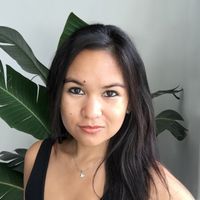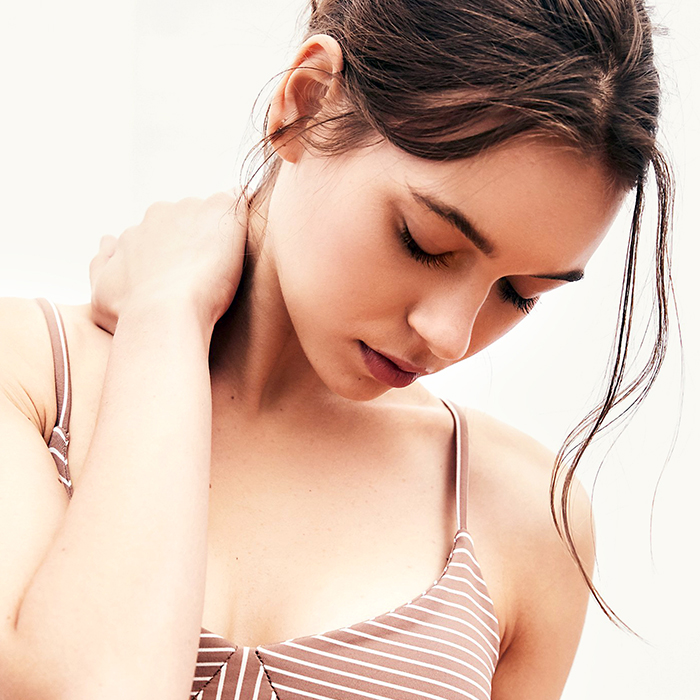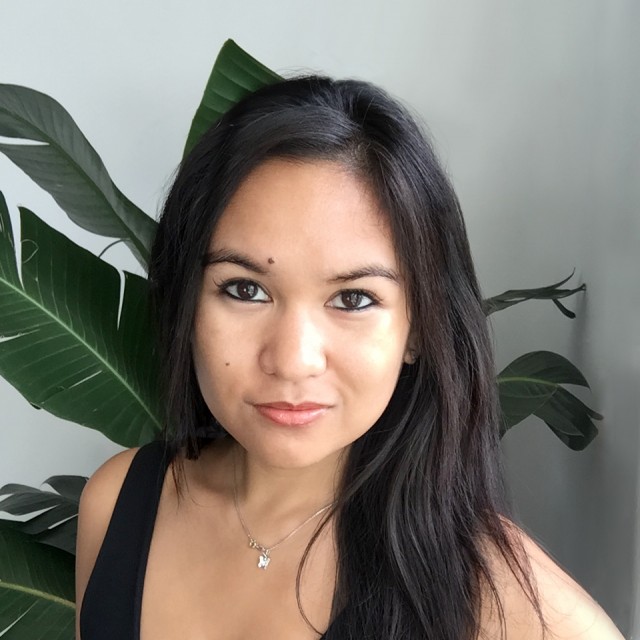How Self-Care Became a Status Symbol

When I scroll through Instagram, I either see pictures of a Juice Press green juice being held by a well-manicured hand or a Boomerang of someone boxing on my feed tagged with "#selfcare." When I google the term "self-care," I'm greeted with hundreds of articles telling me what classes or foods I need to take care of my body and mind (my brunch conversations have transformed into debates on what barre class tones you and how drinking only broth for meals helps get rid of the toxins in your body). Now, more than ever, we are in the era of self-care the brand, not the practice or the school of thought.
Our heightened interest in wanting to take care of ourselves isn't a new observation. Earlier this year, NPR pointed out that self-care is a millennial obsession. The Cut was the first to call out the wellness epidemic that has taken over our lives, something that goes hand-in-hand, if not used interchangeably, with the idea of self-care. But what are we talking about when we talk about self-care? The term gets thrown around casually to the point that it feels cliché.
On the podcast Still Processing, Jenna Wortham and Wesley Morris, culture writers for The New York Times, were discussing what it means to take care of ourselves in today's political climate, when Wortham defined the problem perfectly and said, "self-care has become synonymous with self-indulgence or self-investment."

The term "self-care" originally came from a medical concept. Doctors described it as a way for patients to treat themselves by engaging in healthy habits under the supervision of a professional. It turned into a politically charged term associated with the Civil Rights and the Women's Rights movements when health was a privilege to white males.
Morris and Wortham define self-care as a means "to actively push back against systems that break you down and institutional ways of not being cared for." This definition easily gets lost when you take a look at social media or talk about it with people around you.
Self-care has become synonymous with self-indulgence or self-investment.
"When people hear the term 'self-care,' I always think about the clip from Parks and Recreation with Retta and Aziz Ansari where they have the shopping competition marathon and are like, 'treat yo'self,'" says Wortham. "[We think] people who have time to indulge in self-care practices have more access to time or money."
I no longer save for the Chanel bag I've lusted after for years. Instead, I save money for my barre classes (average class costs range from $30 to $37 in New York City) and weekly therapy sessions (depending on health insurance, it can cost hundreds for one visit). But it's not about pouring all my money into exercising and my mental health that makes it a status symbol—it's the bragging.
My friends, co-workers, people my age, and I fill day-to-day conversations with what workout trend we're on, what diet we're thinking of doing, and trying to convince each other our way is best. The self-care hashtag alone is associated with over three million pictures on Instagram, showing people at trendy gyms or masking at home. Competing for who does "self-care" best dilutes the meaning of taking care of yourself and makes it only relatable to people who have the means to afford those things.
But it's not about pouring all my money into exercising and my mental health that makes it a status symbol—it's the bragging.
While taking care of your body is definitely a form of self-care, when you indulge in trendy workout classes, niche healthy drinks, and other wellness improvements simply for the show of it, you cheapen the true meaning of self-care with materialism. Plus, a lot of truly effective self-care practices are more abstract: Journaling, meditating, limiting your social media in-take—they all aim to fix the cause of whatever is breaking you down and cost next to nothing at the same time.
Self-care is the fight against the very thing that is hurting you by taking control of your own narrative; by looking inward to better negotiate the external. It can range from something small like taking a 20 minute break to listen to music when you feel overwhelmed to aiming bigger, like seeing a specialist when you simply cannot go it alone.
There's a difference between pampering yourself and taking care of your overall health, and oftentimes they are interconnected (yes, if the occasional retail therapy trip lifts your mood and makes you happy, that's a good thing). But self-care is more than just a "treat yo'self" mentality. It is rooted in taking care of your mental and physical health to the best of your ability so that you can live a life that benefits yourself and those around you.
When tragedy hits, like the mass shooting in Vegas this past week, or when living in a tense political climate like the one we’re currently in, self-care is important to grieve and process all those hard feelings in a healthy way. Even when you get your heart broken, it's important to use mindfulness to work through the pain and come out of it stronger and happier. Finding an outlet to explore your feelings and understand them eventually helps you fight against those "systems that break you down."
It's something to think about before you Instagram your pineapple kombucha drink.
Next up, see why we should stop apologizing.
This article is provided for informational purposes only and is not intended to be used in the place of advice of your physician or other medical professionals. You should always consult with your doctor or healthcare provider first with any health-related questions.

Kate Moss. She's the OG beauty chameleon.
Who are your 5 favorite people to follow on Instagram?@zoeisabellakravitz @bellahadid @emrata @beautifuldestinations @bookofthemonth
What's the beauty essential you can’t live without?Eyeliner. People sadly look at me strangely (or share concern over my well being) when I don't wear it. My go-to is the Marc Jacobs Beauty Highliner Gel Eye Crayon Eyeliner in black.
What's your desert island album?The Weeknd's Starboy.
What's your favorite Byrdie.com story?Game of Thrones Star Nathalie Emmanuel on Fame, Fear, and Her Iconic Hair. It's such a great profile on her and it almost made me want to start watching Game of Thrones.